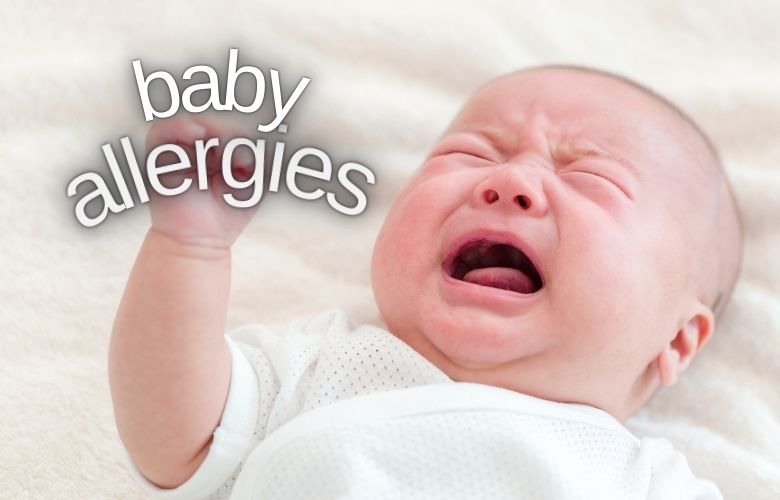👶 Understanding Baby Allergies and Sensitivity
As parents, it’s natural to worry when your little one develops rashes, tummy troubles, or unusual reactions to food or the environment. While some symptoms may be mild and temporary, others could be signs of allergies or sensitivities. Understanding the difference can help you keep your baby safe, comfortable, and healthy.
🌟 What Are Baby Allergies?
An allergy happens when a baby’s immune system reacts strongly to something harmless, such as a type of food, dust, or pollen. The body sees it as a “threat” and releases chemicals that cause symptoms.
Common Baby Allergens
- Cow’s milk or formula proteins
- Eggs
- Peanuts and tree nuts
- Soy and wheat
- Fish and shellfish
- Dust mites, pet dander, or pollen
👀 Signs of Allergies in Babies
Look out for these possible allergy symptoms:
- Red, itchy skin or rashes (eczema, hives)
- Swelling of lips, face, or eyes
- Runny nose, sneezing, or coughing
- Vomiting or diarrhea after feeding
- Wheezing or breathing difficulties (in severe cases)
⚠️ Seek medical attention immediately if your baby shows difficulty breathing, swelling of the face/throat, or persistent vomiting — these could be signs of a severe allergic reaction (anaphylaxis).
🌱 What Is Sensitivity or Intolerance?
Unlike allergies, sensitivities or intolerances don’t involve the immune system. Instead, the baby’s body has trouble digesting or processing certain foods.
Examples of Sensitivities
- Lactose intolerance – trouble digesting lactose in milk, causing gas, bloating, or diarrhea
- Food sensitivities – fussiness, tummy pain, or mild rashes after certain foods
Symptoms are often less severe than allergies and usually don’t cause life-threatening reactions.
🧸 How to Manage Baby Allergies and Sensitivities
- Introduce foods slowly – Follow your pediatrician’s advice on when and how to introduce solids.
- Keep a food diary – Track what your baby eats and note any reactions.
- Work with your pediatrician – They may suggest allergy testing, dietary changes, or referral to a specialist.
- Breastfeeding moms – Sometimes adjusting your own diet can help if your baby reacts through breast milk.
- Have an emergency plan – If your baby has been diagnosed with a severe allergy, always keep prescribed medication (like an epinephrine auto-injector) handy.
💕 Final Thoughts
Allergies and sensitivities can feel overwhelming, but with the right knowledge and support, you can help your baby thrive. Pay attention to symptoms, work closely with your healthcare provider, and remember — many children outgrow certain allergies as they grow older.
✨ Your baby’s health journey is unique, and with patience and care, you can navigate it with confidence.

